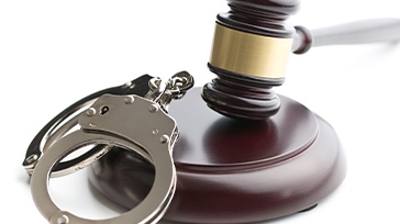
Pasco County Juvenile Crimes Lawyer
Strong Legal Representation for Juvenile Crimes in Florida
When a child is charged with a crime, this can negatively affect his or her future. As a parent, you want to make sure that your child is well-represented by a Pasco County juvenile crime attorney who will work to safeguard your child's best interests.
Our Pasco County juvenile crime attorney always takes into consideration options that can preserve the possibility of expungement so your child can enjoy a clean criminal record as an adult.
Attorney Todd Thurowcan walk you through the juvenile justice system and find ways to resolve the charges without damaging your child's future. He is tenacious and aggressive when pushing for the best possible outcome. As a former police officer, he has a thorough understanding of how the juvenile justice system works and strongly believes in providing our youth with a second chance.
Call Thurow Law today at (352) 775-0775 or contact us online to schedule a meeting with our juvenile crimes attorney in Pasco County!
Understanding Juvenile Crime Charges in Florida
Common juvenile offenses in Florida include:
- Drug offenses
- Underage drinking
- Assault
- Sexual harassment
- Sexting
- Vandalism
- Minor in possession
- Truancy
- Trespassing
- Shoplifting
- Underage DUI
- Gang-related crimes
Navigating the Juvenile Justice System in Florida
Florida's Juvenile Court System is designed to handle cases involving minors accused of committing delinquent acts or offenses. The following is a general overview of how Florida's Juvenile Court System works:
- Arrest and Detention: When a minor is arrested, they are usually taken to a juvenile detention center. The detention center holds the minor until they can appear before a judge.
- Initial Hearing: The initial hearing is held within 24 hours of the minor's arrest. At the hearing, a judge will determine whether the minor should be released to their parents or remain in detention. The judge will also appoint an attorney for the minor if they cannot afford one.
- Adjudicatory Hearing: If the minor is not released after the initial hearing, the next step is the adjudicatory hearing. This hearing is similar to a trial in adult court and is held to determine whether the minor committed the alleged offense.
- Disposition Hearing: If the minor is found to have committed the offense, the next step is the disposition hearing. This hearing aims to determine the appropriate punishment or treatment for the minor. The judge may order the minor to undergo counseling, probation, community service, or placement in a residential facility.
- Appeal: If the minor or their attorney disagrees with the outcome of the disposition hearing, they may file an appeal with the Florida District Court of Appeals. It's important to note that Florida's Juvenile Court System operates under a "best interest of the child" standard, which focuses on rehabilitating the minor rather than punishing them. The system also emphasizes the importance of involving the minor's family and providing them with resources to help them support their child's rehabilitation.
If your child is facing charges in Florida's Juvenile Court System, it's essential to seek the guidance of an experienced juvenile defense attorney who can help you navigate the legal process and advocate for your child's best interests.
When Juveniles Are Tried as Adults in Florida
In Florida, a child who commits a serious crime may be tried as an adult. This means they would be subject to the same criminal laws and penalties as adults rather than the juvenile justice system.
Under Florida law, a child who is at least 14 years old may be tried as an adult for certain offenses, including:
- Capital Felonies: Crimes punishable by the death penalty, such as first-degree murder.
- Life Felonies: Crimes punishable by life imprisonment, such as armed robbery with a firearm.
- Aggravated Felonies: Crimes classified as aggravated, such as sexual battery, aggravated assault, or aggravated battery.
- Certain Repeat Offenses: Children previously adjudicated delinquent for certain offenses may be tried as adults for subsequent offenses.
When a child is considered for trial as an adult, the prosecutor must file a motion requesting that the case be transferred to adult court. The decision to transfer the case is ultimately up to the judge, who will consider several factors, including the seriousness of the offense, the child's criminal history, and maturity level.
If the case is transferred to adult court, the child will be subject to the same criminal laws and penalties as an adult. This means that they may face longer prison sentences and other consequences that could impact their future.

-
 See How We Can Defend YouArrested? Let Attorney Thrurow put his decades of experience in your corner.
See How We Can Defend YouArrested? Let Attorney Thrurow put his decades of experience in your corner. -
 Schedule a Free ConsultationAttorney Thrurrow offers free over-the-phone and in-office consultations.
Schedule a Free ConsultationAttorney Thrurrow offers free over-the-phone and in-office consultations. -
 Read More About Todd ThurowAs a former officer, Attorney Thrurow knows the criminal justice system.
Read More About Todd ThurowAs a former officer, Attorney Thrurow knows the criminal justice system.


